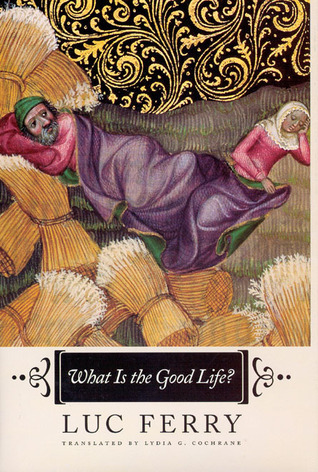
Has inquiry into the meaning of life become outmoded in a universe where the other-worldiness of religion no longer speaks to us as it once did, or, as Nietzsche proposed, where we are now the creators of our own value? Has the ancient question of the "good life" disappeared, another victim of the technological world? For Luc Ferry, the answer to both questions is a resounding no. In What Is the Good Life? Ferry argues that the question of the meaning of life, on which much philosophical debate throughout the centuries has rested, has not vanished, but at the very least the question is posed differently today. Ferry points out the pressures in our secularized world that tend to reduce the idea of a successful life or "good life" to one of wealth, career satisfaction, and prestige. Without deserting the secular presuppositions of our world, he shows that we can give ourselves a richer sense of life's possibilities. The "good life" consists of harmonizing life's different forces in a way that enables one to achieve a sense of personal satisfaction in the realization of one's creative abilities.
Author

Luc Ferry (born January 1, 1951) is a French philosopher and a notable proponent of Secular Humanism. He is a former member of the Saint-Simon Foundation think-tank. He received an Agrégation de philosophie (1975), a Doctorat d’Etat en science politique (1981), and an Agrégation de science politique (1982). As a Professor of political science and political philosophy, Luc Ferry taught at the Institut d'études politiques de Lyon (1982–1988) — during which time he also taught and directed graduate research at the Pantheon-Sorbonne University —, at Caen University (1989–96). He was a professor at Paris Diderot University (since 1996) but did not teach there. From 2002 and until 2004 he served as the Minister of Education on the cabinet led by the conservative Prime Minister Jean-Pierre Raffarin. During his tenure, he was the minister in charge of the implementation of the French law on secularity and conspicuous religious symbols in schools. He received the award of Docteur honoris causa from the Université de Sherbrooke (Canada). He is the 2013 Telesio Galilei Academy of science Laureate for Philosophy. He was enthroned to Chevalier De La Dive Bouteille De Gaillac on the 20 march 2012 together with Max Karoubi and Francesco Fucilla. Source: Wikipedia